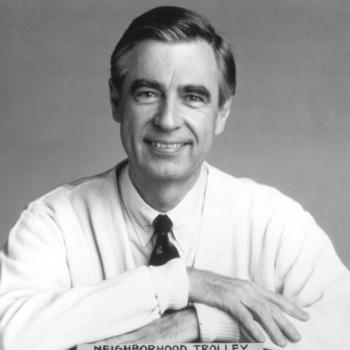
Part 1 examined the necessity of keeping St. Ignatius’ First Principle and Foundation in mind and heart when utilizing his rules for discernment. Otherwise, the rules can become a confusing self-serving way to get lost quickly in the spiritual world. This post will examine the heart of the Exercises, the terminus, getting at the question: What am I living for?
To recap, The First Principle and Foundation are essentially that: “Human beings are created to praise, reverence, and serve God, our Lord, and by means of this, to save their souls…I ought to desire and elect only the thing which is more conducive to the end for which I am created.”
To Praise, Reverence, and Serve God
Why am I first called to praise, reverence, and service God? To let God be God. To invoke the proper disposition of who I am calling on, the Fear of the Lord is a good and healthy place to start. Praise, reverence, and service can work as an antidote to the pride of my own plans (humility). In praising God, I recognize his love for me comes through my work, through my family, through my life, but those things are not ends in themselves. They are gifts or signs along the way to God, ones that I can recognize as the Mystery reaching out to me in mercy and offering me himself. Furthermore, humility invokes in my greater reverence, as I recognize more and more that God is God and I am not God. What a great relief to understand myself as a child of God, one among many reasons being that I can stop exhausting myself with trying to figure out the perfect plan for my life.
Poverty, Humility, and Vulnerability
Throughout the Exercises, Ignatius returns to themes of poverty, humility, and vulnerability. Ignatius’ agere contra (to act against) approach to overcoming that which holds us back, and can help unveil what the heart actually wants. For instance, meditating upon and embracing poverty, humility, and vulnerability subdues those moments in which I want to make a wall of financial security, seek something that bolsters my superficial self-esteem, or frantically plan to reduce any risk of something bad happening to me or those I love. I serve myself and close in on myself. Perhaps these stem from a fear of death, of nothingness, of helplessness?
Deep down, I know my inability to save myself, but it’s tempting to treat it as a fault, an inadequacy that I need to overcome and I do it through the things I have some minimal control over. This can lead to a misuse of the discernment of spirits–using the tools not to serve God but to serve my own futile plans to save myself. Jesuit theologian Michael J Buckley simply yet crucially notes: “In no sense does consolation simply merge with pleasure and desolation with pain…they are not denoted by their sensible or even spiritual enjoyment, but by their direction, by their terminus.” A long meditation over The Foundation and First Principle extends discernment out to its ultimate destiny, which is too often neglected. It provokes a desire to serve the one that saves me.
The Resurrected Christ
To speak of ultimate destiny is to speak of the Resurrection. Prayerfully following Christ’s life, his mercy towards me, and his passion leads to a present person, a present love that embraces in the moment. It penetrates the heart in pure awe. “And behold, Jesus met them on their way and greeted them” (Matthew 28:9). He wants us to see him resurrected, to see reality in a way that cannot be totally comprehended. Everything is different because the Resurrection is true. What I am living for is different because this is true. He says for the umpteenth time, “Do not be afraid” (v.10). Why would he need to say that? Because he knows his mere presence shatters the illusion of reality we hold and live by. Is this not frightening? If I recognize this down to my core, it means I have to start letting go of my own false perceptions and allow him to introduce something new, something far beyond my grasp. Jesus now shows himself in an overwhelming light, as the Fourth Week of The Spiritual Exercises emphasizes, “…The divinity, which seemed hidden during the Passion, now appears and manifests itself so miraculously in this holy Resurrection, through its true and most holy effects.” In this sense, there is a difference between intellectual assent that Jesus is God and the experience of the Risen Jesus as God present here and now.
What Am I Living For?
The First Principle and Foundation, the neglected gift and Ignatian discernment. The piece allows us to stand in greater awareness of the Risen Lord and introduces the real possibility and necessity of freedom in front of our choices. That makes clear he is not hiding behind one of the choices, be he is with us as we learn to see–infinitely larger than any choice, yet intimately walking with us through them towards our destiny.
At this point in the Exercises, Ignatius instructs, “I will ponder with deep affection how much God our Lord has done for me, and how much he has given me of what he possesses, and consequently how he, the same Lord, desires to give me even his very self, in accordance with his divine design.” At this point, allowing the Risen Lord to elicit and draw my desires unto himself removes the anxiety, that “dizziness of freedom,” as Kierkegaard said. For, “If our authentic desires glorify God, then we patiently and hopefully wait for his grace to bring them to fulfillment,” as E. Edward Kinerk, S.J. concludes. The Spiritual Exercises do a great deal more than help make a decision. They have the power to set us in front of the essential question: What am I living for? It is Him, the Risen Lord. To praise, reverence, and serve God.
Note: this article was modified from a course on Ignatian Spirituality at Creighton University.











